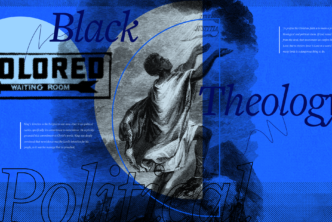The last time we chatted, I made the comment that the right context for interpreting the Bible accurately isn’t the history of Christianity in any of its creedal distillations or denominational forms. But I went even further—I said that the biblical context isn’t any modern world context, period. The right context for understanding the Bible is the context that produced the Bible. That seems simple, but experience has taught me that commitment to this patently obvious truth isn’t easy.
One of the contexts of the Bible is its supernaturalism. The biblical writers believed in an active, animate spiritual world. That world was home to a lot more than the triune God, angels, Satan, and demons. It included other gods (i.e., the gods of the nations were not merely idols) and territorial spiritual beings that were not demons—and were, in fact, superior to demons. It included what we think of as ghosts, who could appear visibly, and even physically, and communicate to the embodied living world of which they had once been a part. For the biblical writers, divine beings could eat, drink, fight, and produce offspring with humans (e.g., Genesis 6:1–4; 18:1–8; 19:1–11; 32:22–32; Num. 13:32–33; 2 Pet 2:4–10; Jude 1:6–7).
Facing up to the Bible’s “weird” passages
In the biblical-theological worldview, the supernatural unseen realm had its own pecking order. Scripture never says that such intelligent beings always had the same agenda, either. The members of the heavenly host were also created in God’s image (the plurality language of Gen 1:26 isn’t about the Trinity), so they possess free will, the ability to make decisions. Their acts and attitudes are not programmed and predestinated. They believe they can defeat the plans of God, or at least forestall them indefinitely, at great pain to him and great cost to humanity (eternal and otherwise).
Let’s face it—we just don’t think like that. The above isn’t the supernatural world of most Christian traditions. That doesn’t matter if we’re sincere about reading Scripture through the cognitive framework of its writers and original intended audience. But in many cases, especially in evangelical academic biblical scholarship, the supernatural thinking of the biblical writers has been something to explain away or avoid. I’ve seen it hundreds of times over the course of twenty years of sustained focused study as a biblical scholar. There are many creative ways to explain away what the text plainly says in various “weird” passages. But understanding Scripture isn’t about making it palatable or comfortable to modern readers. It’s about discerning what the biblical writer believed and was seeking to communicate to readers who thought the same way.
Are we sincere about biblical authority?
To be blunt, most Christians think themselves believers in the supernatural because they believe in the Trinity, Satan, angels, and demons. They profess Christ and believe in God—and that’s the extent of what they truly think is real in terms of the supernatural. They affirm what they need to affirm to call themselves Christians. The rest is too scary or weird, or perhaps simply superstitious.
When it comes to the supernatural, the question every Christian who says they believe in biblical inspiration and authority is simple: How much of what biblical characters and writers believed about the supernatural world do I believe? Put negatively: How much of what biblical characters and writers believed about the supernatural world do I feel comfortable dismissing as a modern person? The answer to these questions will tell you how serious you are about biblical authority in such matters.
***
Dig into the Bible’s most baffling passages with Dr. Heiser’s I Dare You Not to Bore Me with the Bible.
Be sure to check back every Friday for another unfiltered insight from Dr. Michael Heiser.





